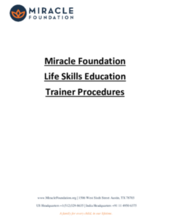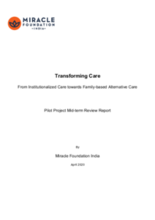Displaying 331 - 340 of 991
This research explains how and why homelessness occurs among youth with serious mental health struggles after aging out of residential and transitional living programmes.
In this video, the First Minister of Scotland, Nicola Sturgeon, issues a statement on the publication of the final report of the Scottish Independent Care Review.
In this article, the authors explore how relationships in the workplace may be an important source of support for some care experienced young people.
In respect of international migration by children and adolescents, the aims of this chapter are: (1) to present the main trends of migratory dynamics before and during the economic crisis in Spain, migrant children in the educational system, and their career expectations as they become adults; and (2) to analyse local policies towards reunified children in Madrid and Barcelona.
The current study provides a more nuanced account of foster youth with disabilities’ transitions into adulthood.
This study examined the impact of health care education materials designed for foster youth, called ICare2CHECK. It was hypothesized that ICare2CHECK would increase nonurgent ambulatory health care use and decrease emergency/urgent care use.
This study reports findings from interviews with young adults with experience of kinship care in Ghana, about what lessons their kinship care experiences provided in their transition to adulthood.
The purpose of the study was to evaluate the associations between child maltreatment, cognitive schemas of disconnection/rejection reported in emerging adulthood, and social support perceived in emerging adulthood among young women who have exited placements in residential care.
Designed for trainers imparting life skills education to children ages 5-18.
This Internal Mid Term Review (MTR) was conducted after completion of Year 1 of a pilot project to create a replicable model for child care institutions (CCIs) to effectively implement Family Based & Alternative Care in India.


